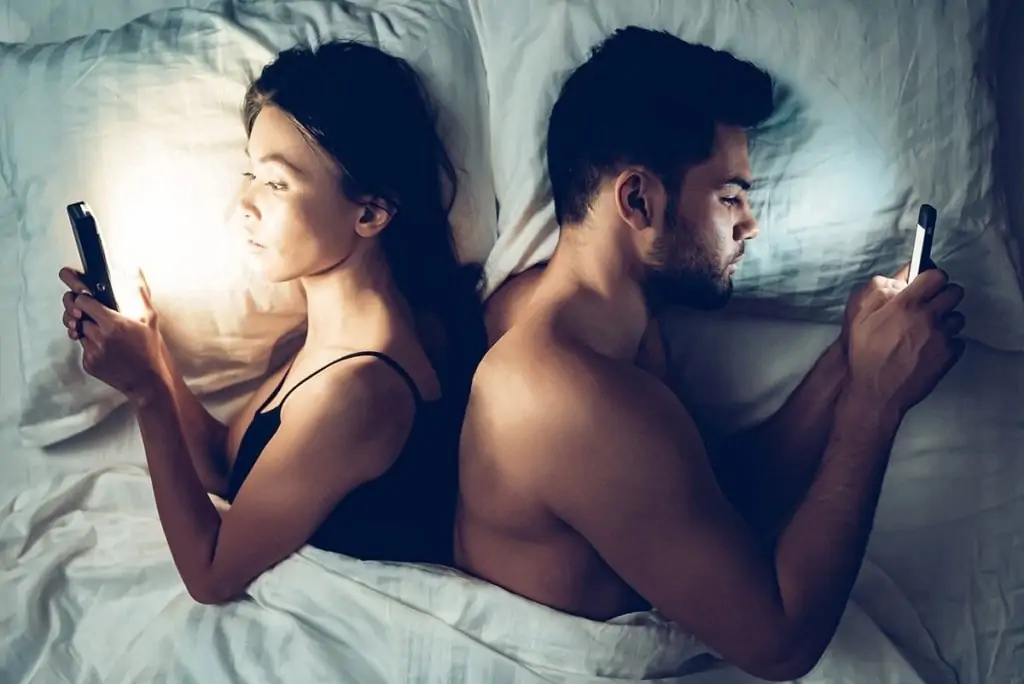
The hotly debated topic of blue light on health raises a myriad of questions among the scientific research community. Is it harmful? Should you avoid it? How much exposure is considered detrimental to your sleep? Snore MD has done the research and is here to let you in on the hazards and benefits of blue light exposure.
What Is Blue Light?
Blue light is a color on the electromagnetic spectrum that is visible to the human eye. It has a very short wavelength, emits high amounts of energy, and is naturally produced by the sun. Blue light is found artificially in electronic screens and LED lighting. It is not the same as ultraviolet (UV) light and there is no evidence supporting the theory that blue light causes the same irreversible damage to the eyes that UV light can.
Do We Need Blue Light?
Yes, in moderation. According to an article written by CBC, blue light is necessary for healthy development in humans. It regulates circadian rhythm, boosts alertness, improves memory and cognitive function, and elevates mood. During the day, exposure to blue light helps us stay awake and lowers the production of melatonin, a hormone responsible for making us feel sleepy.
Does Blue Light Affect Sleep?
Yes, it absolutely does! Stephen Lockey, a Harvard sleep researcher, states that artificial light exposure is part of the reason most people don’t get enough sleep. While light of any kind can reduce or suppress melatonin production, the blue light emitted from electronics does so more powerfully. Lack of sleep is linked to weight gain, cardiovascular disease, diabetes, and cognitive decline; these health risks are also commonly associated with a sleep disorder called Obstructive Sleep Apnea.
How Can You Improve Your Sleep Quality and Limit Blue Light Exposure Before Bed?
Establish a “screen time curfew”. Turning off your electronics 2 hours before bed can help stimulate melatonin production which will help you to fall asleep earlier.
- Take advantage of “night time mode” on your electronics. Shifting the colours of your screens to warmer, darker tones can help reduce eye strain and the stimulating effects of blue light on the brain.
- Get more light exposure during the day! Take a walk in the sun, sit in front of a bright window, or turn on a desk lamp at work. Research shows that morning light exposure will help you sleep better at night and boost alertness during the day.
Getting a good night’s sleep is a fundamental component of maintaining good health. If you or someone you know is struggling with sleep, we want to help. Our conveniently located Sleep Apnea clinics are open 6 days a week across Western Canada and our well-trained team of healthcare professionals will get you started on a journey to better sleep.
About the Author:
Ally Robertson is an experienced Registered Respiratory Therapist and Sleep Clinician with Snore MD. Her transition from critical care to community-based medicine was spurred by a desire to help make healthcare more accessible for Canadians. She is always inspired by people and organizations who invest in the health and wellbeing of others.




